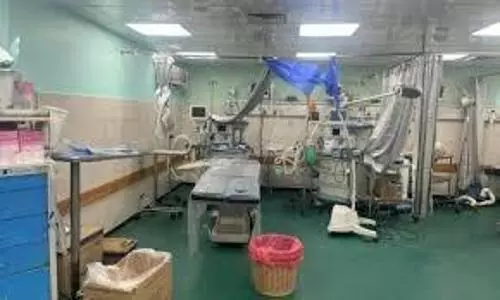
Culprits of Sathankulam
text_fieldsThe victims of Sathankulam custody deaths, Jayaran and Beniks
"CBI has finally taken over the investigation of the custody death cases of Tamil Nadu in which a mobile shop owner and his son were killed, in Sathankulam Thoothukudi district. On 19th June, Sathankulam police arrested Jayaraj, the mobile shop owner and his son Beniks for having kept the shop open ten minutes beyond the time stipulated under Covid-related lckdown restrictions, put them under lockup and subjected them to merciless torture. Within the next few days both died of injuries. Witnesses say that the torture and murder came when the police felt provoked by some utterances by Jayaraj against them. Though, five police personnel including the inspector and sub-inspector were arrested following fiery public protests, due to apprhensions of the case being washed off calls were raised for CBI investigation and the Centre has ordered it.
What became a turning point in the investigation so far is a witness statement by the female head constable who was on duty in the police station on the night of the event. The CBI has registered two cases and put a special team in charge of the probe. Popular conscience was jolted not only by charging of a case for a relatively minor offence and killing a father and son over it, but also the suffocation of the entire system of law and order and justice delivery under that pretext. Both father and son were put under severe torture. News reports tell that the villains ran berserk one whole night, pinching hair from their chest, crushing genitals and making sexual molestation, even sent his blood-stained clothes three times and got new ones. And the next day, the two were taken to the hospital with clothes drenched in blood, and the doctor without much questioning made a routine report. And when they were produced before the magistrate, he did not do anything more than mechanically signing the remand paper without asking even the formal customary questions. Nor was any question raised when they reached the jail.
The police version is that the injuries were sustained while they tried to jump out of the police vehicle and fell; and that was ratified by the police Superintendent too. Thus, it was when the links in the government machinery colluded one with another that the Madras High Court intervened suo motu and led the case to a Crime Branch probe. But there again, the police publicly derided the magistrate who was there to enquire, and proved that even that enquiry would not be possible.
In the normal course of such an incident, a case should have been registered immediately. The entire team in the police station should also fall in the shadow of doubt. People suspected guilty through an objective departmental enquiry should be suspended from service. And the persons arrested and put in lock-up should be provided the services of a lawyer and undergo medical examination within 48 hours. Relatives should be immediately informed. The Supreme Court had drawn attention to these as constitutional obligations in the DK Basu case of 2015. But the police charged only a weak case under section 174.
The same police officers had put under torture a 28-year old man last May who also succumbed before death. When in May 2018 a firing was ordered on protesters against the pollution in Sterlilte Industries in Thoothukudi, and rifle-bearing goons were chartered for the job, that was also by the same police. It was in the backdrop of all this that clamour came for a CBI enquiry into this case.
But the mere fact that CBI has taken up the case, need not take the case to fruition. And the general experience about such cases in the country does not hold much promise. Figures tell us that five persons per day become victim to custody deaths. During last year alone, 117 people were killed in police custory and 1606 people were killed in judicial custody. The precedent in most such cases is that after initial protests die out, cases go into oblivion. In the 500 cases of custody deaths from 2005 from 2018, not even one was indicted, as stated in the report released on 26 June by 'National Campaign Against Torture'(NCAT) which studies about torture in India. The report also says that in India, police use custody torture as a means of eliciting information and obtaining confessions from the detainees and in some cases of victimising the suppressed classes. The study also revealed that there are people with lethal criminal character among jail officials and torture has become a systematic tool in India for suppression and assault and to silence dissenting voices – all laying bare how a chain that goes mad will turn horrendous. Thus, when a system itself behaves like Sathankulam, the event there need not be the last in this satanic series.























